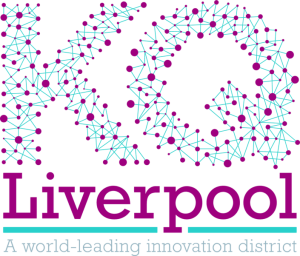Sciontec has unveiled plans for a second phase of its HEMISPHERE development, creating 350,000 sq ft GIA of new laboratory and workspace in the Knowledge Quarter Liverpool (KQ Liverpool) innovation district.
It is proposed the HEMISPHERE Two development is located adjacent to HEMISPHERE One at Paddington Village, Liverpool City Council’s flagship development site. The scheme is subject to discussions with the Council in relation to master planning and the future disposal of remaining plots at Paddington Village and planning consent.
It was announced today that the two buildings will receive Liverpool City Region Investment Zone grant funding, and Sciontec has already reached outline agreements with a number of Investment Zone funded projects, which could take HEMISPHERE One to 66% occupancy prior to works commencing.
The Centre of Excellence for Long-Acting Therapeutics (CELT), a cross-faculty research initiative by University of Liverpool targeting clinical needs not currently addressable using conventional medicines, is lined up to take 44,421 sq ft of laboratory space across the top three floors of HEMISPHERE One.
The building will also be home to Civic Health Innovation Zone (CHI-Zone), which could occupy 16,211 sq ft of innovative workspace, and National Biofilms Innovation Centre (NBIC), which is poised to move into 14,807 sq ft of laboratory space.
This follows a recent decision by the Department of Levelling-Up, Housing and Communities to support Liverpool City Council’s investment proposal to create a world-leading science and innovation hub, including the provision to deliver HEMISPHERE One.
HEMISPHERE Two will feature Open Access Laboratories on its ground floor, chemistry labs, and has also been identified as a potential location for the new Pandemic Preparedness and Response Laboratories.
The decision to create a second phase of the HEMISPHERE development is designed to meet growing demand for laboratory space in the city and region. Both buildings will also feature Sciontec’s all-inclusive, flexible workspace solution, Sciontec AI, which has proven popular at the neighbouring building, The Spine.
Professor Mark Power, Chair of Sciontec and Vice-Chancellor at Liverpool John Moores University, said:
“With existing lab facilities at Liverpool Science Park already at capacity and HEMISPHERE One now significantly pre-let, we have a robust platform to move forward confidently with plans for HEMISPHERE Two and create even more places for pioneers to thrive in the heart of the city region.”
Professor Tim Jones, Vice-Chancellor at the University of Liverpool, said:
“The innovation community within KQ Liverpool will be the engine room for the delivery of Investment Zone ambitions to create a production superpower in life sciences and pharmaceuticals over the next five years, and it is clear that increasing numbers of businesses want to be a part of that.”
Mayor of the Liverpool City Region, Steve Rotheram, said:
“With up to £800m of investment and thousands of quality, high skilled jobs on offer, the Liverpool City Region Innovation Zone is an important tool in our arsenal to position our area at the head of UK science and innovation. It’s fantastic to see HEMISPHERE take a big step forward with up to £13m of funding that I’ve secured as Chair of the Liverpool Strategic Futures Advisory Panel.
“But in the Liverpool City Region, we’re proud to do things differently. Throughout the development of our Innovation Zone, I have been clear that any investment in our area must go further than purely financial incentives. I want to use our status as a force for good, to connect our residents up to secure, well-paid jobs and training opportunities, and attract transformational investment into our communities.”
Cllr Nick Small, Cabinet Member for Growth & Economy at Liverpool City Council, said:
“As our reputation as an innovation hotbed continues to rise, so does the demand for high-quality lab space in KQ Liverpool. This is reflected in the impressive collection of occupiers already lined up and the decision to expand HEMISPHERE marks another important milestone in the development of Paddington Village.”
HEMISPHERE will be designed with the capability to integrate with the newly-completed LCR Connect network, part funded by the Liverpool City Region Combined Authority, maximising its resilience and connectivity benefits as part of one of the best-connected areas in the UK.
Sciontec expects works to commence in Spring 2025, with practical completion of HEMISPHERE One reached by early 2027, followed shortly thereafter by HEMISPHERE Two.
Sciontec is the spin out development company of KQ Liverpool and is jointly owned by Bruntwood SciTech, Liverpool John Moores University, the University of Liverpool and Liverpool City Council.
CBRE and Knight Frank are the retained commercial agents for HEMISPHERE.

